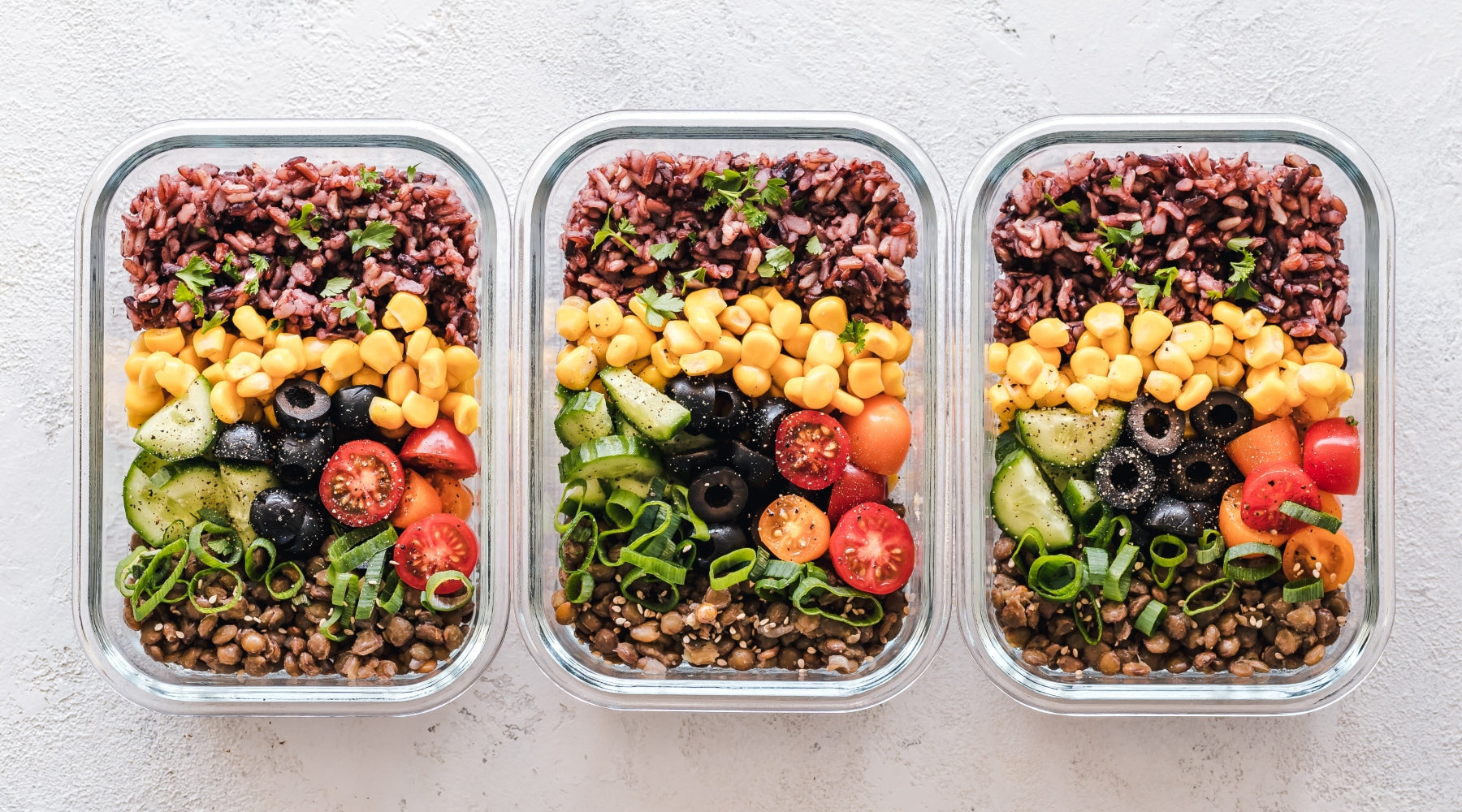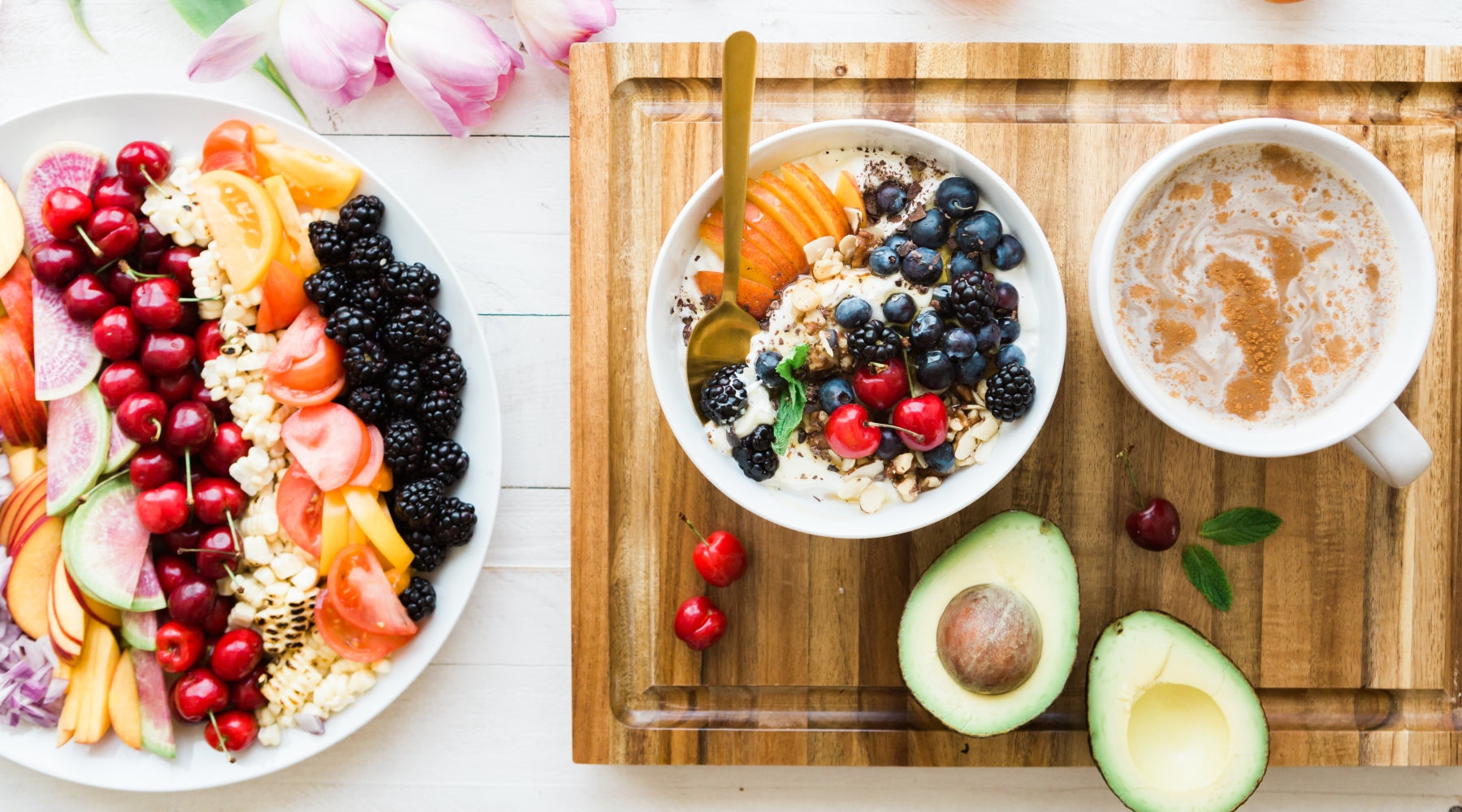
Gut Health 101: Easy food swaps to support gut health every day
A healthy gut doesn’t just mean less bloating and better digestion – it can do wonders for your overall wellbeing! It means more restful sleep, a stable and balanced mood, clearer skin, increased energy, a stronger immune system, and reduced inflammation. Diet and gut health are very closely linked, so it’s important to eat foods that actively promote the growth of beneficial bacteria.
Below are 9 easy food swaps you can make in your diet to support a healthy gut microbiome each day:
- Opt for cooked veggies
While salads are considered healthy, a bowl full of raw vegetables may further irritate your gut if you’re someone with existing gut issues. Cooking your vegetables can result in more soluble vitamins, minerals, and antioxidants because their fibre or cell walls get broken down, so their nutrients become more accessible. For example, roasted, sautéed, or grilled mushrooms contain more potassium than uncooked mushrooms!
- Watch your intake of caffeine, alcohol, and carbonated drinks
If you’ve been struggling with digestive issues but haven’t considered the impact of caffeine and alcohol on your gut…it might be time to reassess your intake! Caffeine contains acids which can upset the lining of your intestines, so try sticking to just 1 cup a day or opting for naturally caffeine-free alternatives such as turmeric lattes, chicory root coffee, or rooibos. Alcohol can cause further throw off the balance in your gut as it increases the bacteria that cause inflammation and decreases the bacteria that support digestion.
- Avoid raw legumes
Legumes have a remarkable nutritional profile and are a rich source of healthy fibres and protein. However, the phytic acid and lectin (also known as ‘antinutrients’) present in raw lentils and beans can impair the absorption of nutrients from your meals, and may lead to gas after consumption, especially if you suffer from digestive issues. You can use methods like soaking, sprouting, and boiling to reduce their levels of these compounds.
- Swap white pasta for pulse pasta
Pulse pastas are made using flour from pulses including peas, lentils, and chickpeas instead of wheat. They’re high in plant protein, which helps to keep you fuller for longer, and they provide sustained release of energy. Pulse pastas are a great pasta alternative for those who are allergic or intolerant to gluten, plus they’re an easy way to get more plants into your diet!
- Swap cereal for oatmeal
Unlike generic store-bought cereals, oats contain a special type of soluble fibre called beta-glucan that nourishes and restores healthy gut bacteria. It helps to keep things moving in your digestive tract and keep you regular.
- Swap white bread for seeded sourdough
Sourdough is more nutritious, easier to digest, and contains a lower glycaemic index than regular white and whole wheat bread. It also contains less gluten than other bread, so may be tolerated by those with sensitivity to gluten. In fact, the longer the sourdough is allowed to ferment, the more the gluten is degraded and reduced. This process also ‘pre-digests’ and partially neutralises the phytic acid present, making it easier for our body to digest the bread and absorb its nutrients.
- Swap chips for natural popcorn
When you’re craving something crunchy and salty, skip the chips and reach for fibre-rich homemade popcorn or a handful of nuts. Almonds, hazelnuts, and macadamia nuts are highest in the heart-healthy monounsaturated fats, with cashews and pistachios coming in as a close second. Raw, sprouted, and soaked nuts will provide the most nutrients. If you want some extra flavour, just make sure to avoid brands that use oils, sugar, and other additives or preservatives.
- Swap butter for avocado
Avocado is a nutritious alternative to butter that provides a good source of fibre. Not only can adding avocado increase the overall nutritional value of your meals or baked goods, but it can also substitute butter’s saturated fat for healthy monounsaturated fat.
- Swap tofu for tempeh
Tofu and tempeh are both delicious sources of plant-based protein, however tempeh has the edge with double the protein of tofu and 9 grams of fibre per 100g. It also boasts an impressive nutrient profile and contains prebiotic fibre due to the fermentation process. Prebiotics promote the growth of beneficial bacteria in your digestive system.


